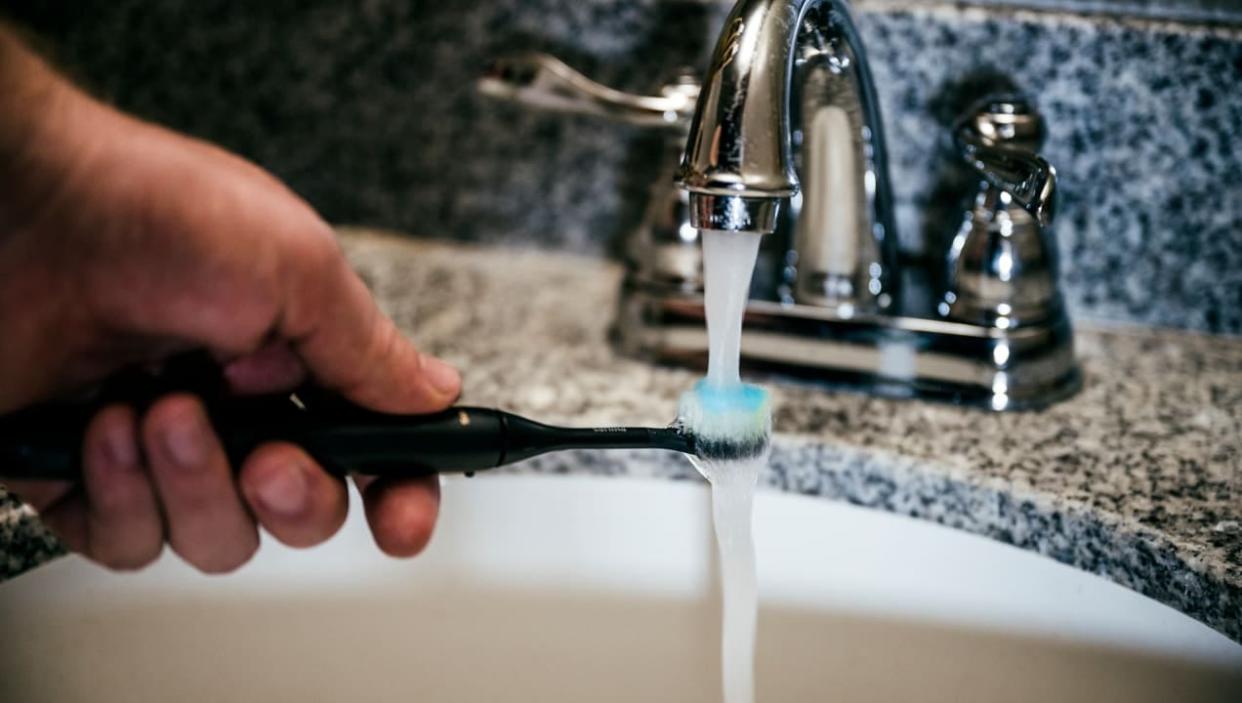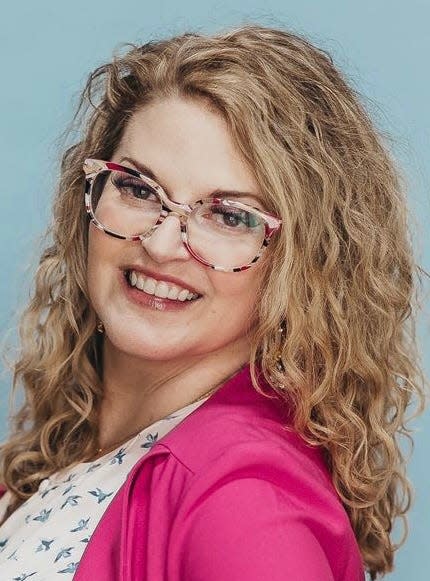Mental Health Matters: You're not alone — depression can make daily tasks difficult

I realize I’ve told a lot of my secrets in this column, but there’s one I haven’t discussed much: When I’m depressed, I can’t brush my teeth, at least not every day. Gross, right? Go on and judge — I’m turning my own nose up.
But before you start feeling too haughty, know that I’m not alone in this. Obviously, I have no data to back up who doesn’t polish her pearly whites (I looked), but millions of us who have major depression struggle with personal hygiene when an episode happens. Although it’s almost always a struggle for me.
When I’m really depressed and my energy has been sapped, I have to decide which daily habits I can do, and brushing my teeth often feels impossible. It’s unfortunate because I just finished a second round of braces, and I’m not wearing my retainers because I feel yucky putting them in my dirty mouth on days I haven’t brushed.
I see how this could look silly. We’re talking about a two-minute task and some flossing. I’m not lazy; I’m sick. And taking care of yourself is so hard when you’re burdened with apathy, hopelessness, fatigue and no motivation. One rarely discussed symptom is called executive dysfunction, which refers to problems with planning, initiating and completing goal-directed activities.
A 2005 study in the National Library of Medicine confirmed that executive dysfunction is common in depression. So daily habits like taking a shower and brushing your teeth can be difficult. Showering used to be my Mount Everest. I would go for days without one, even though I was embarrassed to go out in public because my hair would be greasy. But I just couldn’t do it. When we moved into a new house, the water pressure was better, I bought a space heater, listened to music while I was showering, and I learned to love it. At least tolerate it. Now I love it. Really, I should just take my toothbrush in the shower and do both at the same time.
That’s a nice idea. I can give myself advice — or listen to others’ — all day, but I need to take the first step and conquer the intimidation factor. I have to do it myself, and I have to imagine what it will be like and then replay the situation in my head. Breaking through the thick fog of “I can’t” or “I don’t wanna” is scary.
Sometimes, as twisted as it sounds, I feel protected by my depression. I know it feels great having my teeth slick and clean. That and I don’t have to feel insecure when in public, but that’s what my depression wants — to keep me in the dark, like I don’t deserve clean teeth. That I’m not good enough. And I allow myself to believe it!
That right there, my friends. A red flag. I didn’t even see it until now.
It’s time to get help. It’s time to call my dentist. It’s time to put my toothbrush in my mouth, even if it’s with my kids’ toothpaste, even if it’s for 30 seconds.
This isn’t just about brushing my teeth. But I’ll start by letting my dental hygienist know what's going on. She knows about my depression, and hello, you can’t hide bad gums and plaque. There’s no shame in sharing that you have depression. Screw the stigma.
I’ll get a teeth cleaning, a clean slate, and start thinking of personal hygiene tasks as self-care.
Because it is, and I deserve to feel and look good. I believe I am worthy.
And my depression no longer has a dog in the race.
If you’re struggling with taking care of yourself, remember:
Prioritize self-care.
Set small goals.
Be patient with yourself.
Reach out to your doctor if your depression worsens.
Don’t feel ashamed — this happens to a lot of people with depression (and other mental health conditions).
Research personal hygiene “hacks.”
Don’t compare yourself to others.
If you are in crisis, please call/text the Suicide and Crisis Lifeline at 988. It’s free to call and staffed 24 hours a day.

For more than 20 years, Heather Loeb has experienced major depression, anxiety and a personality disorder, while also battling the stigma of mental health. She is the creator of Unruly Neurons (www.unrulyneurons.com), a blog dedicated to normalizing depression and a member of state Rep. Todd Hunter’s Suicide Prevention Taskforce.
Mind Matters
Now more than ever we need to take care of our mental health. Guest columnist Heather Loeb discusses why and explores other important mental health topics in this special series.
This article originally appeared on Corpus Christi Caller Times: Mental Health Matters: Depression can make daily tasks difficult

